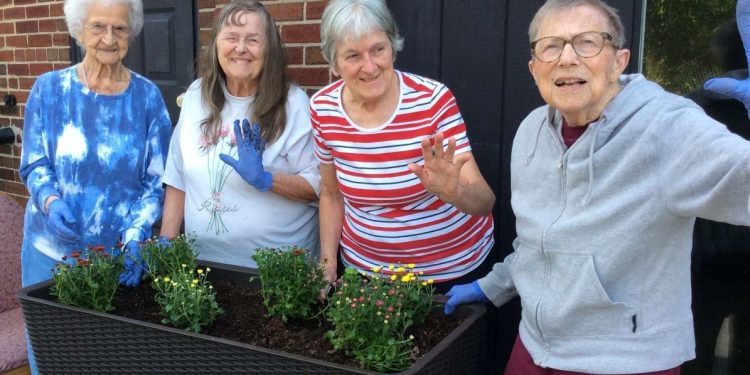DUBOIS – When people are in their 20’s, 30’s, 40’s and 50’s, they are busy!
They are busy enjoying careers, raising families, traveling and pursuing hobbies as well as socializing with friends and family members.
In their 60’s, 70’s and beyond, most people slow down a little. Some enjoy retirement and new hobbies, while others experience social isolation and depression.
In the United States, approximately one third of seniors live alone, and many report feelings of loneliness or depression with some experiencing social isolation.
Loneliness is the subjective distressed feeling of being alone or separated. It is possible to feel lonely while among other people, and you can be alone yet not feel lonely. Social isolation is the subjective physical separation from other people (living alone).
According to a report by the Administration for Community Living’s Administration on Aging of the U.S. Department of Health and Human Services, nearly 28 percent of older adults in the United States, or 13.8 million people, live alone, but many of them are not lonely or socially isolated. At the same time, some people feel lonely despite being surrounded by family and friends.
“People can become socially isolated for a variety of reasons, such as getting older or weaker, no longer being the hub of their family, leaving the workplace, the deaths of spouses and friends or through disability or illness,” said Danielle Heiberger, a certified occupational therapy assistant and Adult Day Program coordinator at Penn Highlands Adult Day Center in St. Marys.
“The loss of important relationships can lead to feelings of emptiness and depression. Persons involved with a positive relationship tend to be less affected by everyday problems and to have a greater sense of control and independence.”
Heiberger explained that social isolation and loneliness hinder good health — putting older adults at risk for high blood pressure, heart disease, obesity, a weakened immune system, anxiety, depression, cognitive decline and Alzheimer’s disease.
It is only natural that a person may feel a sense of loneliness when their social circle is reduced as a result of retirement as well as when family and friends relocate or pass away. Often people who are lonely will take steps to keep busy and be in situations with others.
Conversely, people suffering from social isolation may experience the following symptoms:
- Avoiding social interactions, including those that were once enjoyable.
- Canceling plans frequently and feeling relief when plans are canceled.
- Experiencing anxiety or panic when thinking about social interactions.
There are ways to help prevent loneliness, social isolation and depression such as:
- Use the 15-minute rule. Encourage the person to spend at least 15 minutes per day talking to a friend or family member. The conversation can be by phone, video chat, gaming or ideally face-to-face. This small interaction can have a big impact on their mood.
- Limit your distractions. When the focus is on the person to whom you are talking, it improves the quality of your interaction and your mood.
- Help people. Doing for others also is good for you. Find ways to be of service such as taking a treat to a neighbor.
- Accept help from others. Life can be overwhelming and it is even worse when a person feels alone. Accepting help from others also provides social support.
- Exercise. If your health permits, even minimal physical activity can boost your mood.
- Participate in an adult day services program. These programs provide safe and comfortable environments with opportunities for meaningful activities, new friendships and companionship.
For people considering adult day services, the Penn Highlands Adult Day Program in St. Marys, offers an interactive and safe day program.
It is ideal for adults of all ages that want social interaction as well as for adults with dementia or other organic brain syndrome/physical limitations or other age-related physical or cognitive limitations.
The medically supervised adult day service is an activity-oriented program designed to improve the quality of life for individuals who need daily care but wish to remain in their current living situation.
For caregivers, adult day services offer time free from the demands of caregiving. To learn more, visit www.phhealthcare.org/adultday/ or call 814-781-825.



